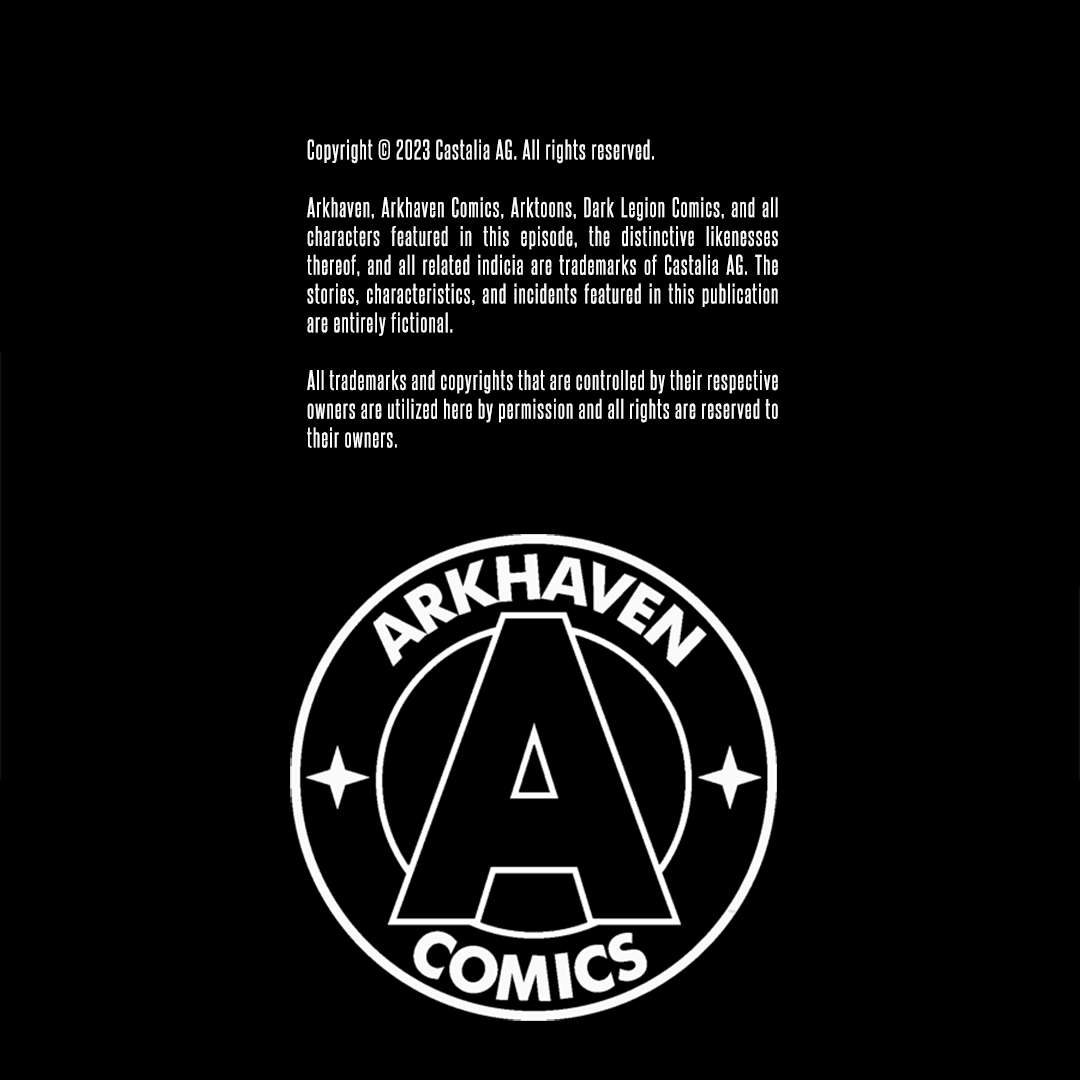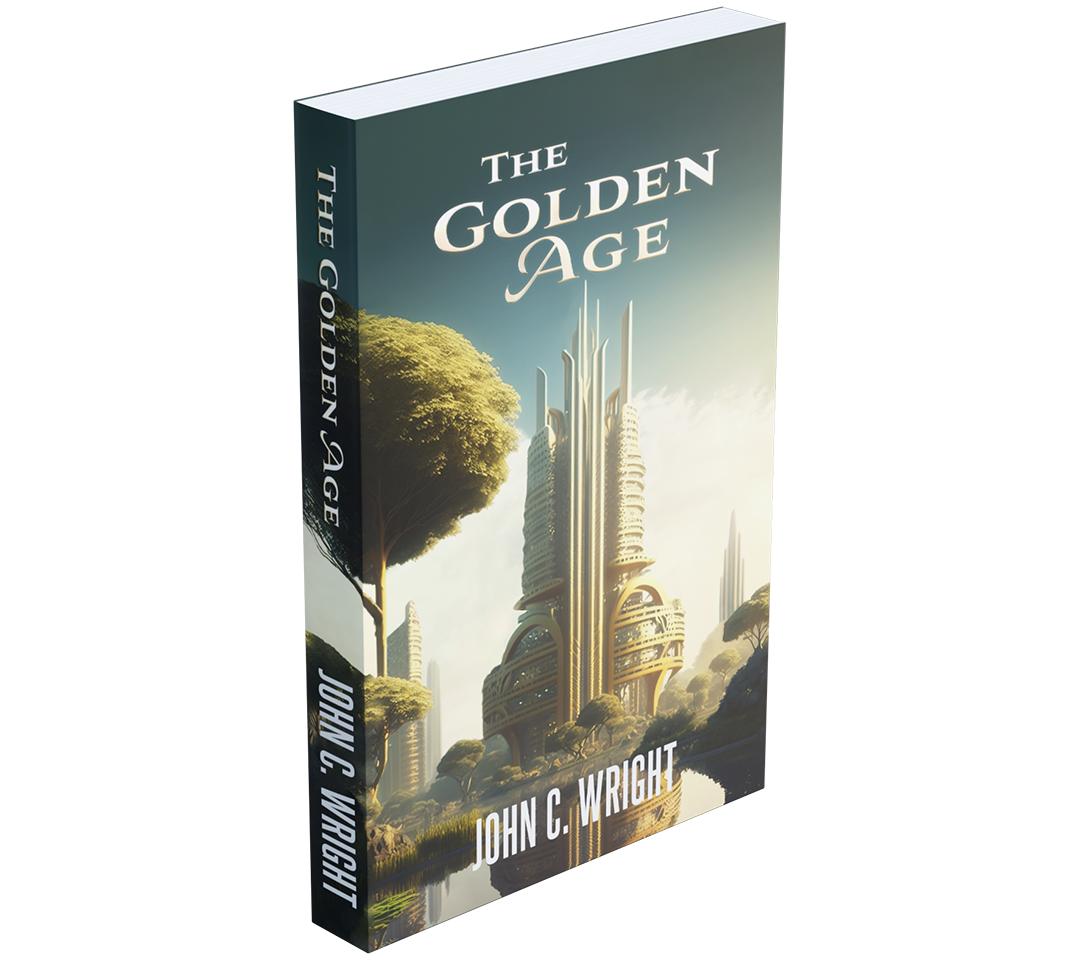
Episode 11
Even in Arcadia, Death Comes
“Phaethon? The name dates from the Time of the Second Mental Structure. The myth is of the sun god’s bastard child who dared to drive his father’s chariot … .” Phaethon’s voice trailed off.
There was a final surge and broil in the depth of the Neptunian body substance, as structural elements were formed and grown into place. A gush of wind announced the creature was activating its lift generators, joined by whistling screams from compression-jets.
The Neptunian’s voice, channeled into Phaethon’s sensorium, did not need to get any louder to speak over the rush and rumble of the liftoff. “You named yourself for a demigod whose ambition burned a world. Not the name a man content with his lot in life would choose. But you don’t recall why you chose it, do you? Can you begin to guess now how much of your memory is missing? They did not even let you keep the meaning of your name.”
Phaethon backed up as pressure exploded from the feet of the Neptunian. Its low, flat shape was now in an aerodynamic configuration. With ponderous grace, it raised its nose to the sky, and moved upward.
Phaethon adjusted his sense-filter so that, instead of the roar of jets and the whine of magnetics, he still only heard the chirruping of night insects in the Saturn-grove. Amplifying his vision to the highest extent he could, he saw the body of the masquerader, wrapped in some sort of cocoon or buoyancy chute ejected from the Neptunian as it rose. He attempted to encompass the satellite and ground-based location routines within his vision, and to open more sense-channels. But apparently the same protocol that disabled the location routines during masquerade extended to escaping aircraft as well. Phaethon was not able to track the body as it fell.
As for the Neptunian, it flashed like distant ice, gained altitude. Then the light twinkled and receded, one star lost among many.
6.
In the palace:
Wheel-of-Life was a Cerebelline ecoperformer of the Decentral Spirit School, as well as trustee for all copyrighted biotechnology based on the Five Golden Rings mathematics. She appeared as a matron of serene beauty and grave demeanor, seated on a throne of living flowers, grass, and hedge, in which a dozen species of birds and insects nested. She was also physically present (insofar as that word had meaning for Decentral Spiritualists), but her great cloak of interwoven living fibers ran from her shoulders out the window to where the other plants and animals that formed her corporate body and mind components reposed.
Cerebellines were a neuroform whose hindbrain and cortex were interconnected in the pattern called “global,” from their ability to resolve multiple simultaneous interrelationships. They could think in a timeless meditation, and from many points of view at once. This avoided set-theory paradoxes, and linear-thought limitations. It was one of the least popular neuroforms in the Golden Oecumene, however, since it fell prey too easily to mystical conundrums and nonverbalisms.
(Helion was not able to maintain a translation from her point of view for any length of time. The plantlike parts of her were aware of the room only as motion, pressure, sunlight, moisture, but also as computer movements, information flows. The birds and rodents gave so many small, scattered pictures and sounds of the Conclave that Helion was perplexed; and the thoughts were so tangled with sharp, bright shards of instinct, lust, hunger, fear, that Helion’s brain-structure could not assimilate or index the perceptions.)
Wheel-of-Life indicated an objection. She expressed herself by holding up her hands and creating a miniature ecosystem in its globe. Microbes, plankton, brightly colored fish-shaped darts swam in the globe; triangular shark things fought many-tentacled cephalopods in relentless subsea wars.
She shattered the globe on the table surface into many globes. In each of the lesser globes, one species and only one rose to dominance, destroyed all competition, overgrazed, died back, and lost its throne. In every case the single dominant life form subdivided into new avenues as evolution continued.
Ao Aoen, the Master Dreamer, owner of a vast entertainment empire, spoke up: “I agree with Wheel-of-Life. Helion’s vision will create a future of monochromatic conformity; events will narrow toward simplicity. Yet our society is diverse. Solutions are diverse. Within the mind are webs of interconnections, laws of thought; between minds are webs of social relation, laws of institutions. Turn one inside out and you have the other. Yet which of us is simple enough to be understood by, or complex enough to understand, ourselves?!”
Helion responded by inventing a mathematical game of geometric solids and spaces within a three-dimensional grid.
He held it up like a glass box in his hand, and ran it, in compressed time, a dozen or a thousand times. In all but one case, the shapes bowed to the pressure of the surrounding solids, eventually formed cubes, and consumed all the available empty spaces.
The one nonstandard case was a beautiful snowflake-shaped system, with octahedrons and tetrahedrons radiating out from the single central dodecahedron. Ao Aoen thoughtfully reached across the table with his extremely long fingers, picked up that system, saved it, and handed it to Wheel-of-Life, who sent several birds and insects to gaze at it with joy.
“I’d like to disagree with Peer Wheel-of-Life,” said Helion. “The diversity in nature is sustained because the beasts and plants must solve their disputes in inefficient life-or-death competitions. Rational creatures can create treaties, laws, and social mechanisms to channel aggression into peaceful competition. Competition encourages efficiency. Efficiency encourages uniformity. Even a society as diverse as ours has certain rules and mores which we must enforce against those who deviate.”
Gannis murmured: “And here I had thought we were agreed not to speak about Phaethon again … .”
Helion hid a frown in a backup file, where no one could see it. Yet he frowned.
Vafnir, the energy magnate, said, “The same argument implies, Peer Helion, that those society employs to enforce its rules against deviations are justified in their use of force. Is this consistent with the arcadian ease and utopian peace we all have known?”
Helion said, “There are warriors even in paradise. And even in Arcadia, death comes.”






























































































































